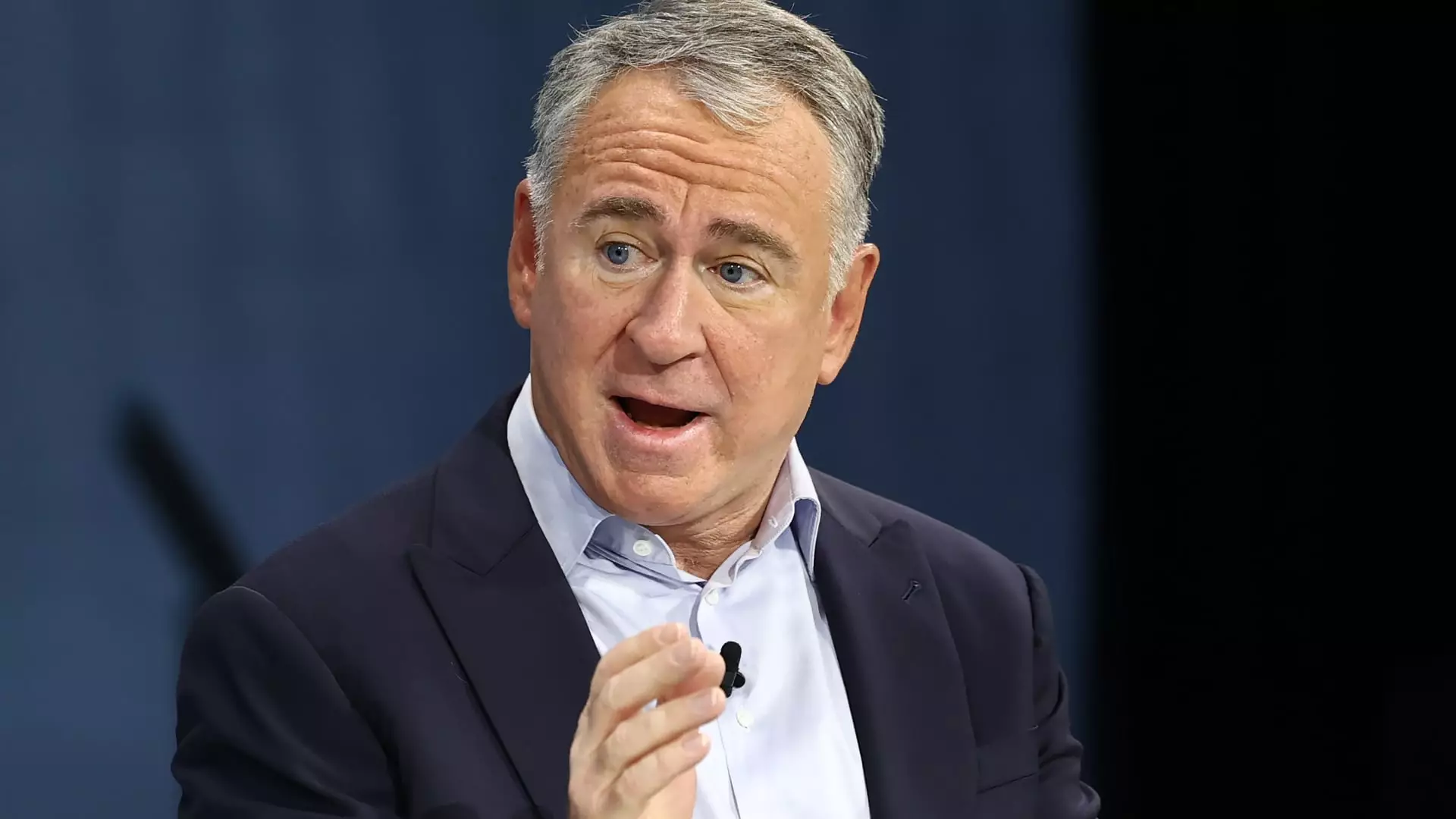In recent discussions surrounding the shifting landscape of U.S. trade policy, Ken Griffin, CEO of Citadel, has voiced strong concerns regarding the consequences of aggressive rhetoric and tariff imposition by the Trump administration. Speaking at the UBS Financial Services Conference in Key Biscayne, Florida, Griffin articulated his belief that the combative approach to trade not only jeopardizes international relationships but also instills a sense of uncertainty among corporate leaders and policymakers. As a significant player in the financial sector, Griffin’s apprehensions warrant serious consideration, particularly as they may resonate with other stakeholders who navigate the complex economic framework.
The backdrop of Griffin’s remarks stems from President Trump’s recent decision to enact steep tariffs—25% on steel and aluminum imports, following a prior 10% duty on all Chinese goods. The implications of such moves have raised alarms among investors, disrupting the long-term strategies of multinationals dependent on stable trading conditions. Griffin, who previously supported Trump’s initiatives through both votes and substantial campaign donations, finds the administration’s current path concerning. His warnings center around the potential for a hostile economic climate that could complicate investment decisions for years to come.
Griffin’s insights underscore the precarious position faced by multinational corporations as they strive to develop long-term capital investment plans. The imposition of tariffs can fundamentally alter the terms of engagement among the world’s leading economies, creating a more volatile market. For these companies, the unpredictability resulting from punitive tariffs complicates not just immediate financial maneuvers but also strategic planning efforts that extend over multiple decades. Companies that previously had a reliable framework for forecasting economic conditions now find themselves forced to reassess their approaches, weighing the risks associated with increasing instability.
An additional layer to Griffin’s critique involves concerns about the potential proliferation of crony capitalism. This economic environment would reflect a troubling alliance between government officials and business leaders, which could stifle fair competition and market integrity. As tariffs favor certain industries while penalizing others, such dynamics can lead to a situation where decisions are made based on relationships rather than merit, further eroding trust in the marketplace. The normalization of cronyism within economic policies risks creating an uneven playing field, alienating companies that do not benefit from preferential treatment.
Ken Griffin’s discerning analysis of U.S. trade policy highlights the delicate balance between national interests and the health of the broader international trading system. As economic leaders navigate these turbulent waters, it becomes increasingly crucial for policymakers to prioritize sustained dialogue and cooperative engagement. The ramifications of current tariff strategies extend far beyond the immediate financial landscape; they echo into the long-term viability of business operations and economic relations. It is a time for pragmatism over posturing, as the stakes for American businesses and global partnerships have never been higher.


Leave a Reply